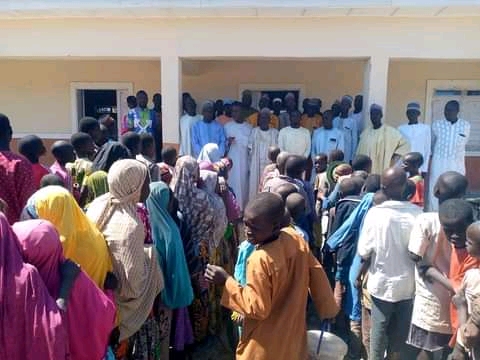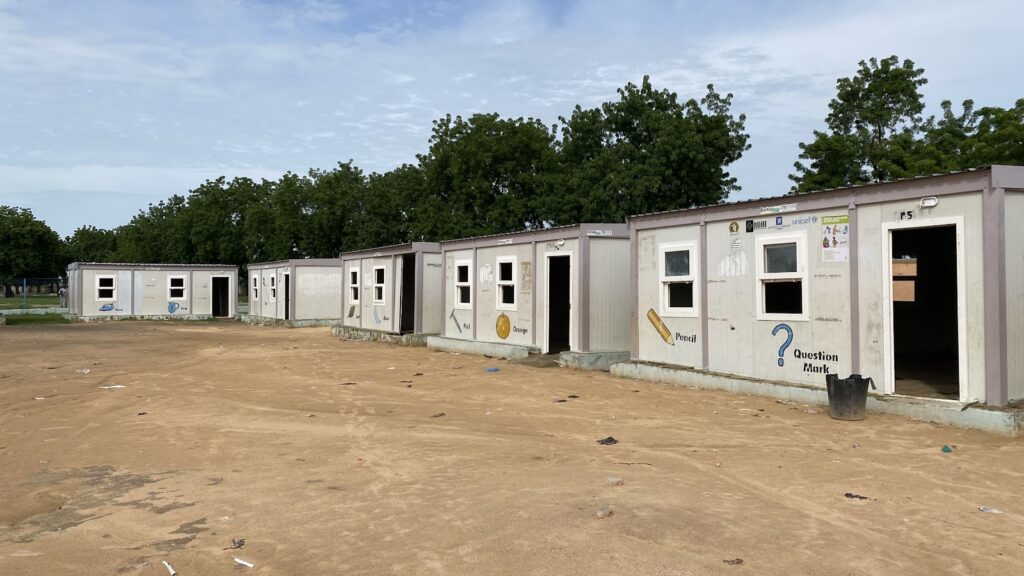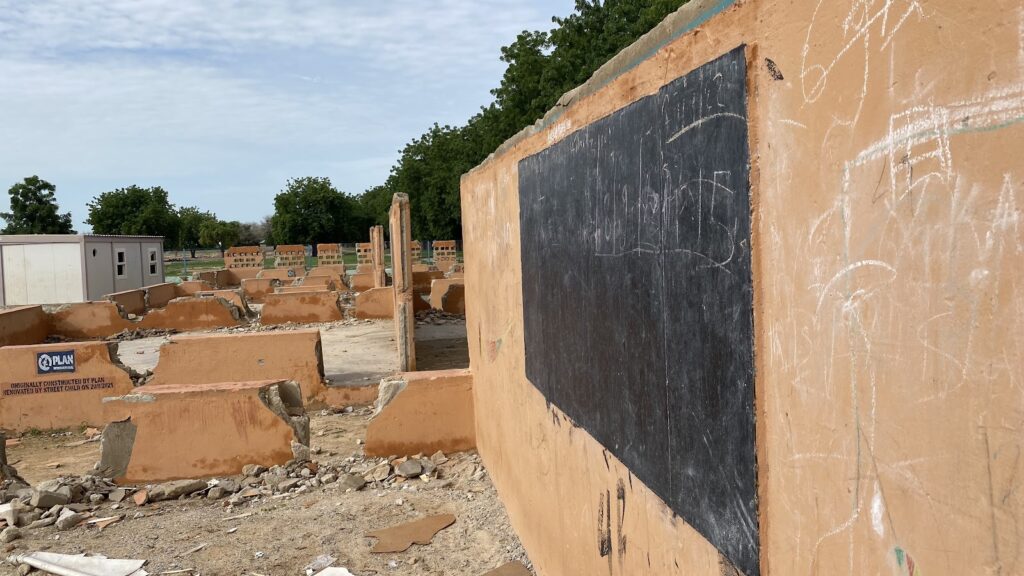School Activities Resume In Nigeria’s Kirawa Community After 8 Years
Although it took a long time, it was the realisation of a pledge the Borno government had made while interacting with the community earlier this year.

Residents of Kirawa community in Borno state, Northeast Nigeria, expressed appreciation over the reopening of its primary school after it was closed down about eight years ago when the community was displaced by terror and violence as a result of the Boko Haram insurgency.
The opening ceremony took place at the school’s premises on Nov. 16, five months after displaced people from the community were resettled back.
Although it took a long time, it was the realisation of a pledge the Borno government had made while interacting with the community earlier this year.
Abdullahi Ummate, representing the supervisory headmaster of Gwoza East, Zone C, which consists of 12 primary schools, said, “we are grateful to the government for rebuilding and repairing our community schools.”
According to Abdullahi, out of the 12 primary schools located in Zone C, Kirawa Primary School is the only school that has been rebuilt and opened since the resettlement of communities in the area began.
This development has raised parents’ confidence in the continuity of their children’s education. Part of their society’s development has been shattered since the advent of the insurgency.
Umate Malla, a resident of Kirawa, said, “this is a good development, and we encourage more of this kind of progress as our people are resilient.”
Throughout their displacement, which started in 2014, residents of the community had largely been living at Internally Displaced Persons (IDPs) camps and host communities across Maiduguri, the capital city of Borno state. Some residents had fled to neighbouring countries like Cameroon and Chad as refugees.
During their stay in camps and host communities, the schooling of their children was an important concern. Some of them enjoyed basic education at school facilities provided by humanitarian organisations at some IDP camps, and others whose parents were economically stable enrolled them on various public and private schools in the city.


However, the story of their children’s primary education crumbled when the Borno State government issued a directive that all IDP camps in Maiduguri be closed down. The decision was made to relocate everyone and resettle them back to their original home community and, in some cases, other communities.
HumAngle has reported the negative impact of the resettlement on the education of IDP children despite the resettlement packages that promised to rebuild basic amenities like schools, hospitals, and water, among others.
Opening Kirawa primary school is not enough. Despite the school having been renovated, the question of instructional facilities exposes the weaknesses on the side of the development project, according to residents. The school lacks indispensable facilities to aid teaching and learning.
“We are thankful that out of the 12 schools, we have this one to start operation. However, we don’t have chairs, teaching and learning materials in this school,” Abdullahi said.
He also called on the government and necessary actors to consider building teachers’ quarters in order to have effective teaching and learning conditions for their teachers.
Hon. Amada Hokki, councillor of Kirawa and Jimini ward, in an interview with HumAngle, said, “the school needs furniture.”
Before this school reopened, demand for child education had been a pressing need in the community, and this forced some parents to send their kids to school in some parts of the country and neighbouring countries like Cameroon and Chad.
“Those that can afford it send their children to school in Cameroon,” Abba Mallam Umate, a resident of Kirawa, says.
Modu Kolo Abba Buba, a 27-year-old member of the community who enjoyed the Kirawa Primary School before the humanitarian crises erupted, explained that “the reason some parents send their children to neighbouring countries is the long wait for schools to resume in the community since it was resettled. Our children are growing day by day, we couldn’t wait this long.”
According to Modu, good teaching and learning conditions also attract this challenge.
“So, now that our school has reopened, I think it will bring the change we aspire to see,” he added.
Residents feel despite taking a long time, the assistance and support to resettled communities are not enough from the side of the government. And Borno’s decision banning humanitarian aid intervention in such communities has closed windows of opportunity to communities like Kirawa.
Support Our Journalism
There are millions of ordinary people affected by conflict in Africa whose stories are missing in the mainstream media. HumAngle is determined to tell those challenging and under-reported stories, hoping that the people impacted by these conflicts will find the safety and security they deserve.
To ensure that we continue to provide public service coverage, we have a small favour to ask you. We want you to be part of our journalistic endeavour by contributing a token to us.
Your donation will further promote a robust, free, and independent media.
Donate HereStay Closer To The Stories That Matter




